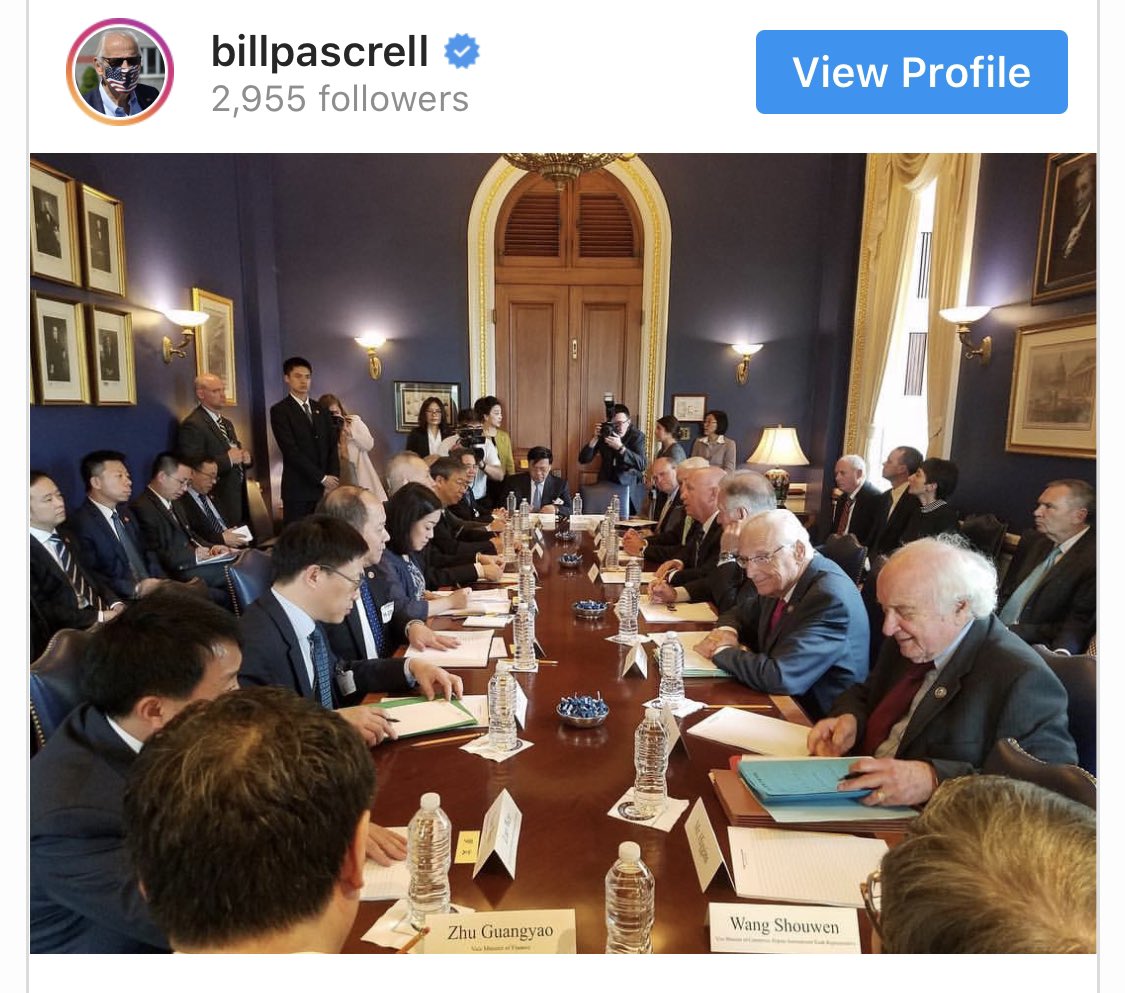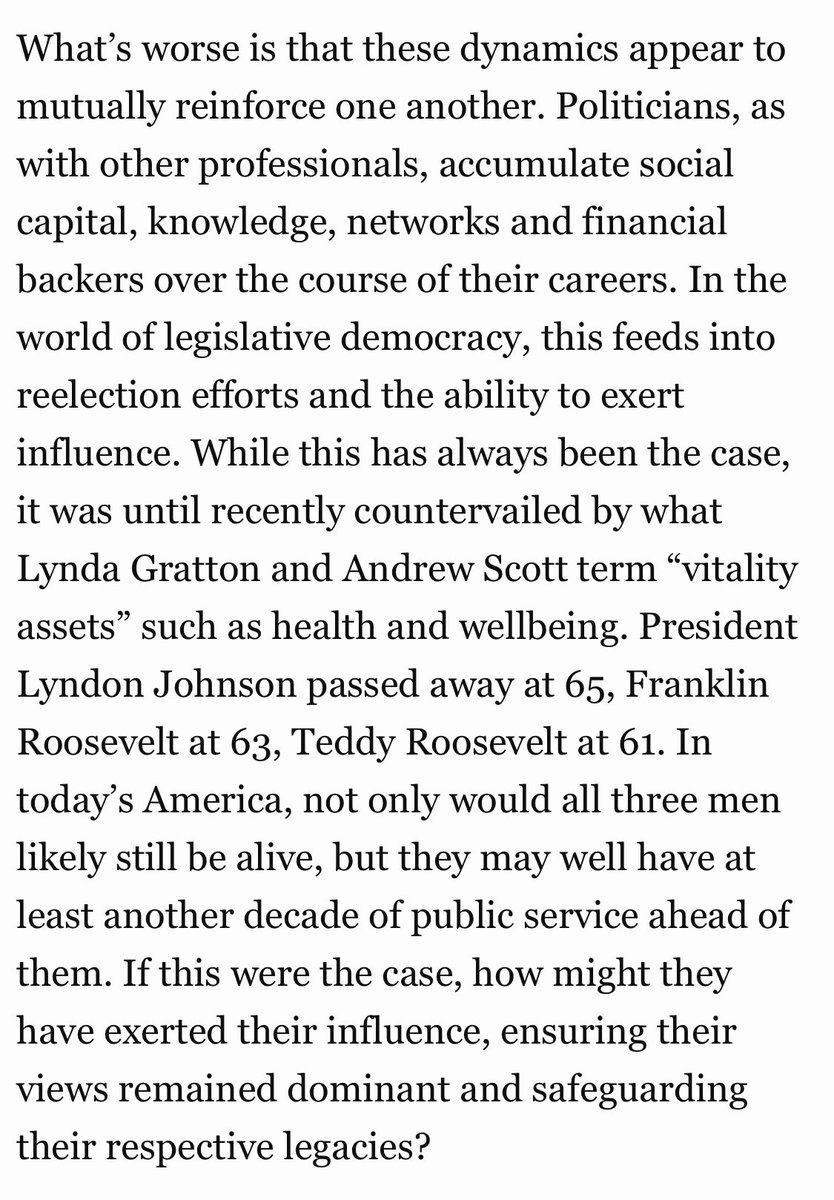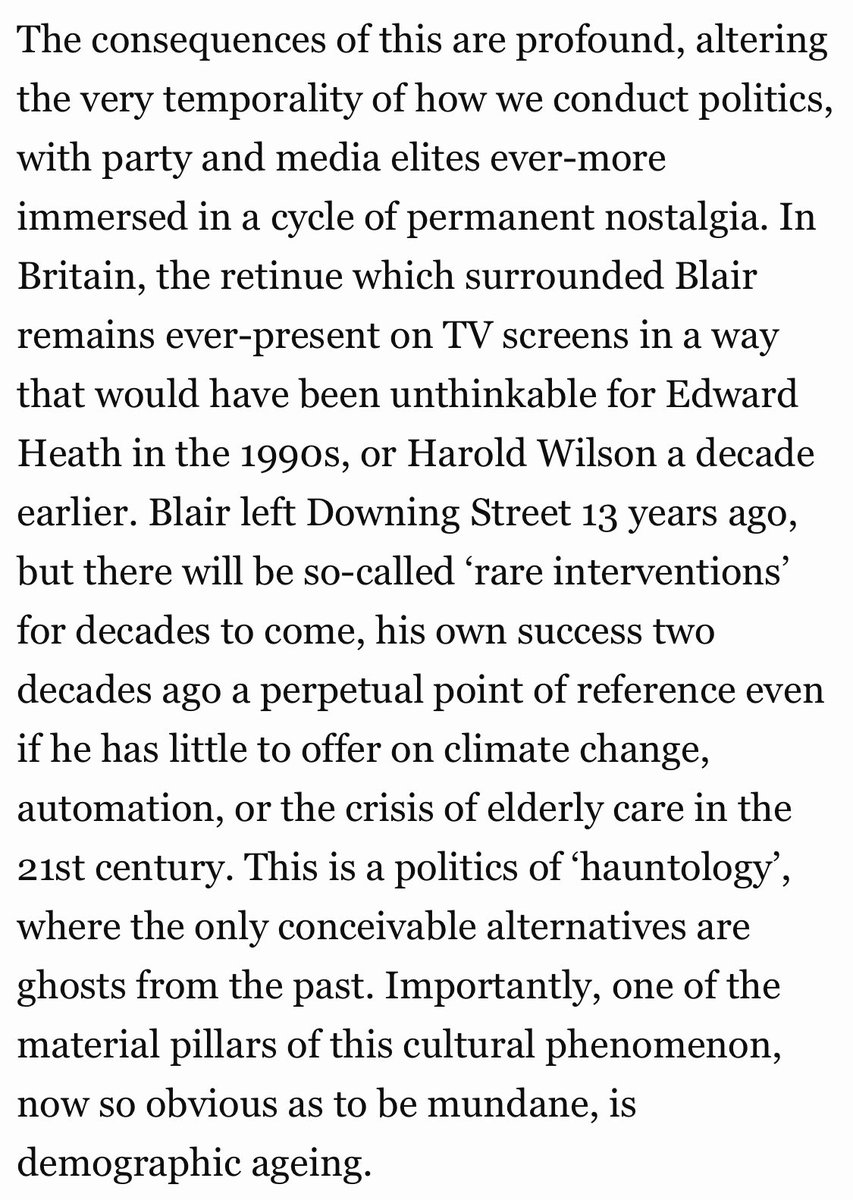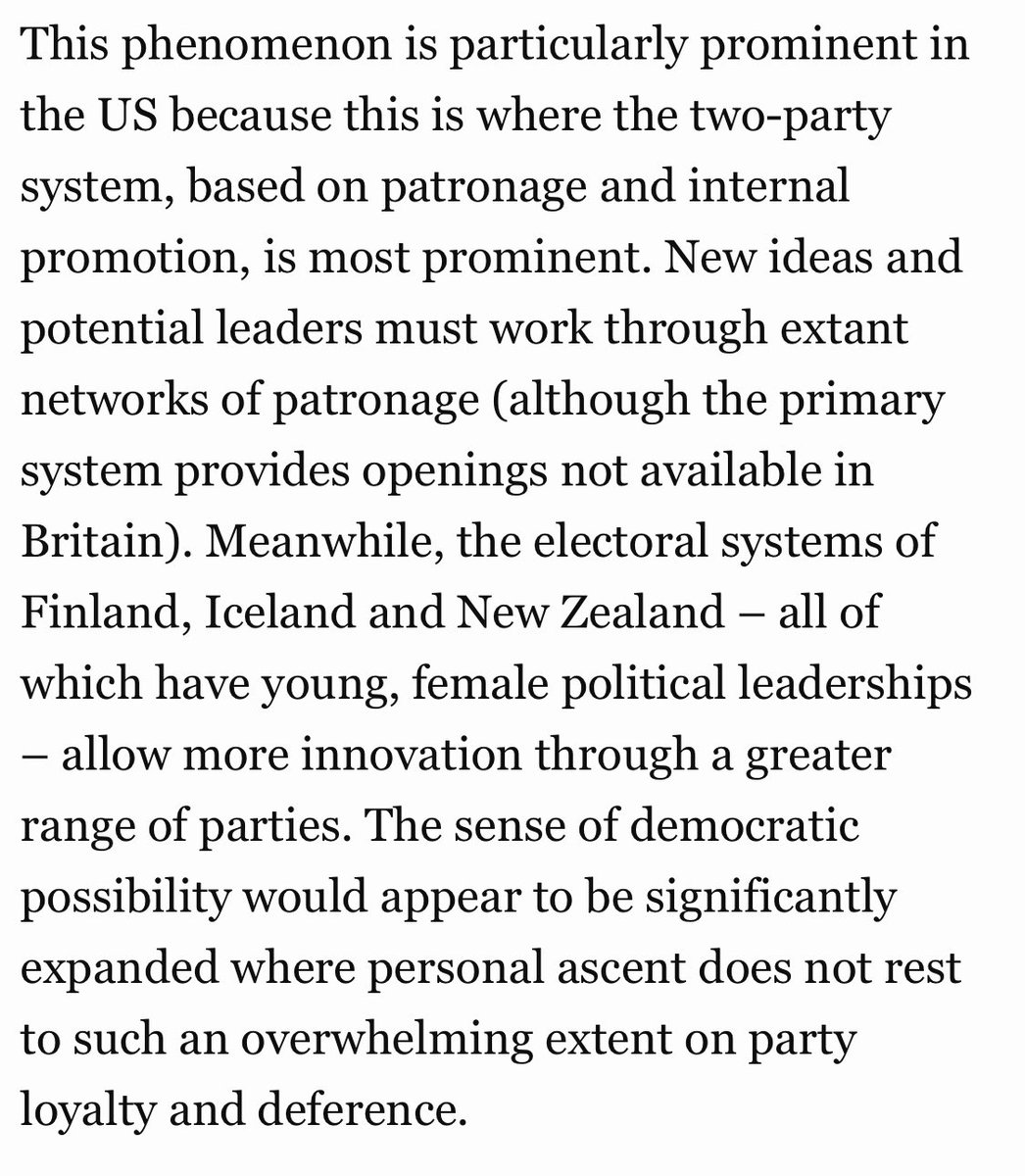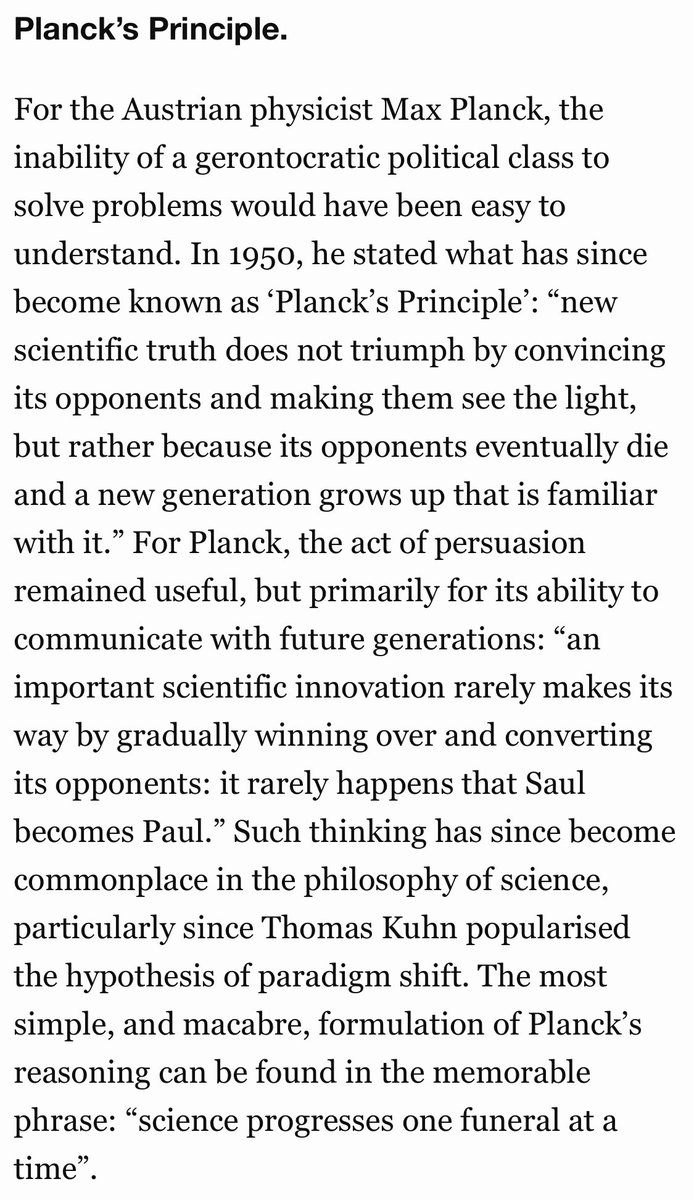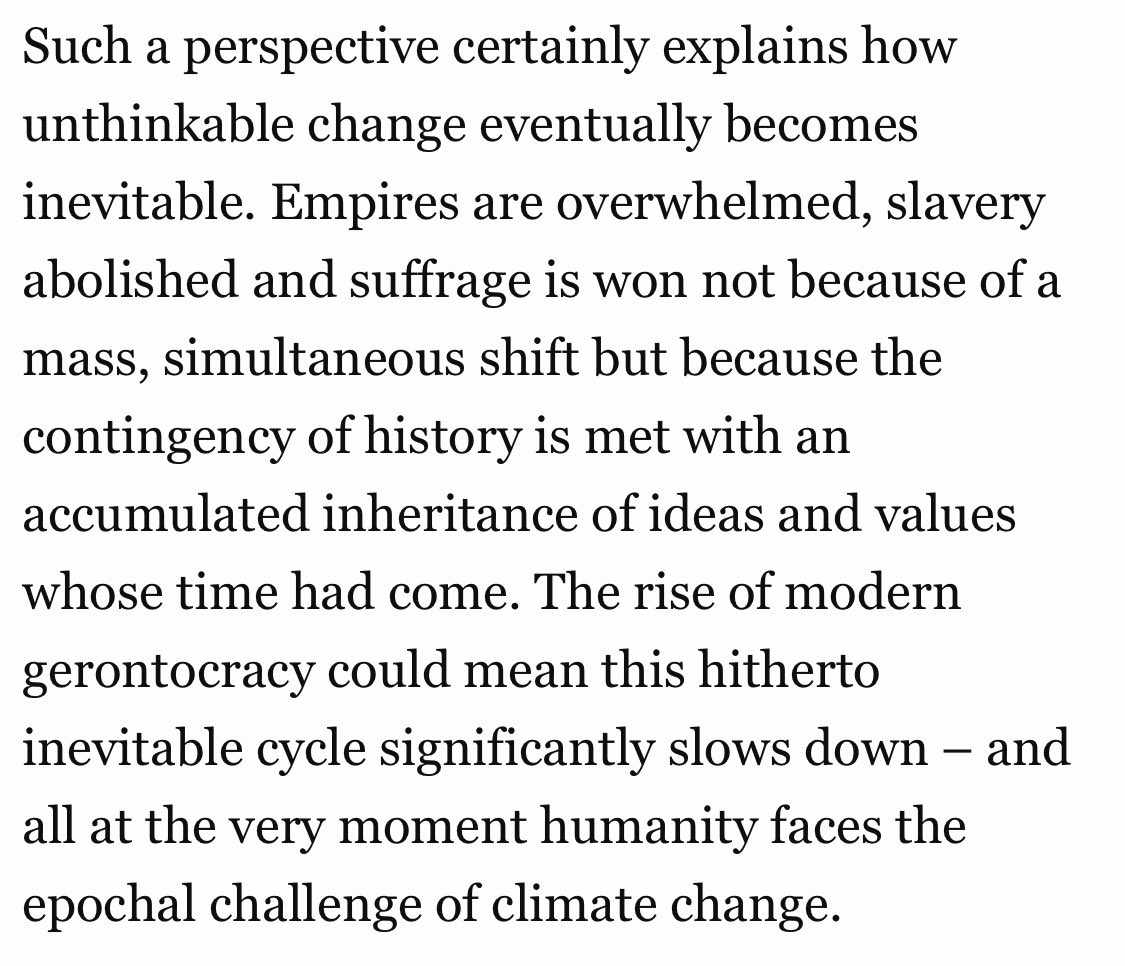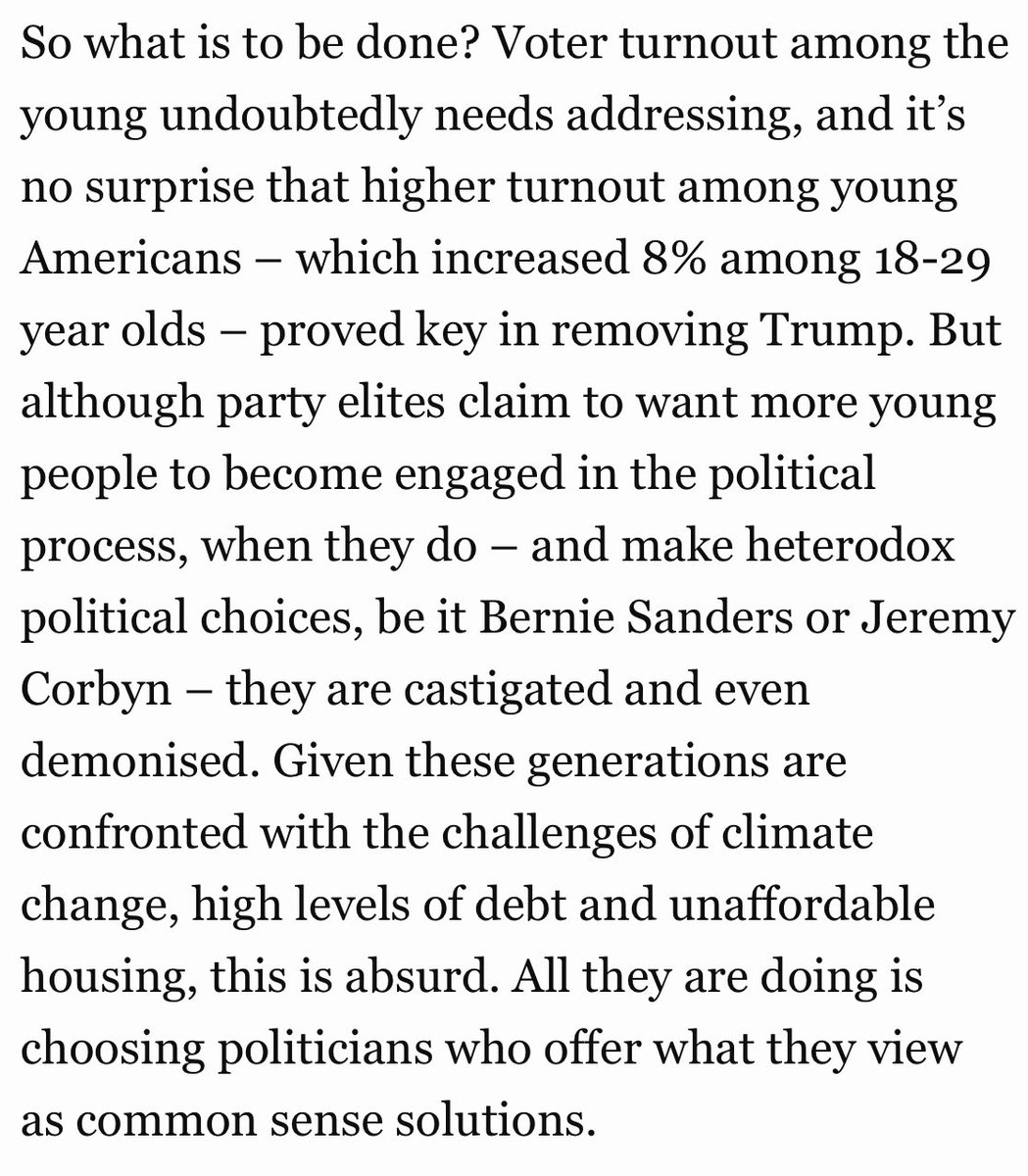The US is a gerontocracy.
It’s President is 74, it’s President-elect is 77. The Speaker of the House & the House majority whip are 80. Almost half the Senate is over 65.
But why is this happening & what are the consequences?
Me for @novaramedia https://novaramedia.com/2020/11/11/america-is-a-gerontocracy-and-until-that-changes-its-problems-will-only-get-worse/
It’s President is 74, it’s President-elect is 77. The Speaker of the House & the House majority whip are 80. Almost half the Senate is over 65.
But why is this happening & what are the consequences?
Me for @novaramedia https://novaramedia.com/2020/11/11/america-is-a-gerontocracy-and-until-that-changes-its-problems-will-only-get-worse/
This 2018 picture from Congressman Bill Pascrell says a thousand words.
Despite having a median age of 38, & being one of the youngest countries in the OECD, America’s politicians are getting older while Europe’s get younger.
Despite having a median age of 38, & being one of the youngest countries in the OECD, America’s politicians are getting older while Europe’s get younger.
Senate president pro tempore, Charles Grassley, runs the Senate Finance Committee at 87. Jim Inhofe, chairman of the Armed Services Committee, is 85. Chairman of the Appropriations Committee, Richard Shelby, is 86. Dianne Feinstein is 87.
This appears unique.
This appears unique.
In Finland, where the median age is 42, PM Sanni Marin is 34; in Iceland Katrín Jakobsdóttir is 44; Macron and Pedro Sanchez are in their 40s. Even Angela Merkel, who has been at the pinnacle of EU politics for 15 years, is younger than the entire Democratic House leadership.
As health and wealth inequality both continue to increase gerontocracy could be the hallmark of plutocracy.
A 2016 study by MIT concluded the richest 1% of US men can expect to live 14.6 years longer than the poorest 1%, a figure that falls to 10.1 years for women.
A 2016 study by MIT concluded the richest 1% of US men can expect to live 14.6 years longer than the poorest 1%, a figure that falls to 10.1 years for women.
Under-examined is what demographic ageing, wealth inequality and Peter Pan elites, means for our political cultures.
It likely means we are stuck in cycles of political nostalgia, increasingly unable to solve present day problems.
This from the article
It likely means we are stuck in cycles of political nostalgia, increasingly unable to solve present day problems.
This from the article

First past the post systems amplify all of these deeply corrosive trends. It is very possible that gerontocracy and plutocracy become most unassailable in these systems.
This from the article
This from the article

This incapacity for political renewal means the US starts to look a lot like the late USSR. By 1980, the average Politburo member was 70, while Brezhnev’s successors, Yuri Andropov and Konstantin Chernenko, were 68 and 72 on coming to power.
In fact, older politicians were ubiquitous across East & Central Europe: Josip Tito was Yugoslavia’s head of state until he died in 1980 aged 87, while Janos Kadar, Gustav Husak, Nicolae Ceaușescu and Eric Honeker were at the helm of their respective countries into their 70s.
There’s an argument that political change is a result of ‘Planck’s Principle’. Gerontocracy as plutocracy means the possibility of change is significantly slowing down - leaving us unable to address huge challenges like climate warming and species extinction.
From article
From article

The example par excellence of this is Senator Feinstein in 2018 telling protesting children that she knows what she’s doing on climate change because she’s been a public representative for three decades. CO2 emissions increased 60% between 1990 & 2013.
Then there’s Orrin Hatch memorably asking Mark Zuckerberg how Facebook makes money. ‘Mr Senator, we run ads’.
This guy is meant to legislate in the public interest!
This guy is meant to legislate in the public interest!
These same party elites want voters under 30 (increasingly under 45 is ‘young’) to engage with politics.
That is until they disagree with their preferences.
That is until they disagree with their preferences.
The solutions? Not easy but you start with electoral reform - first past the post puts rocket boosters under gerontocracy as plutocracy.
This must be accompanied by a change in culture, with respect for younger people rather than trivialising their concerns.
This must be accompanied by a change in culture, with respect for younger people rather than trivialising their concerns.
Until this happens, political representation will face major problems in America and elsewhere. Of perhaps greatest concern, democratic systems won’t just remain unable to deal with the great issues of our era – they may even struggle to *recognise* them.

 Read on Twitter
Read on Twitter